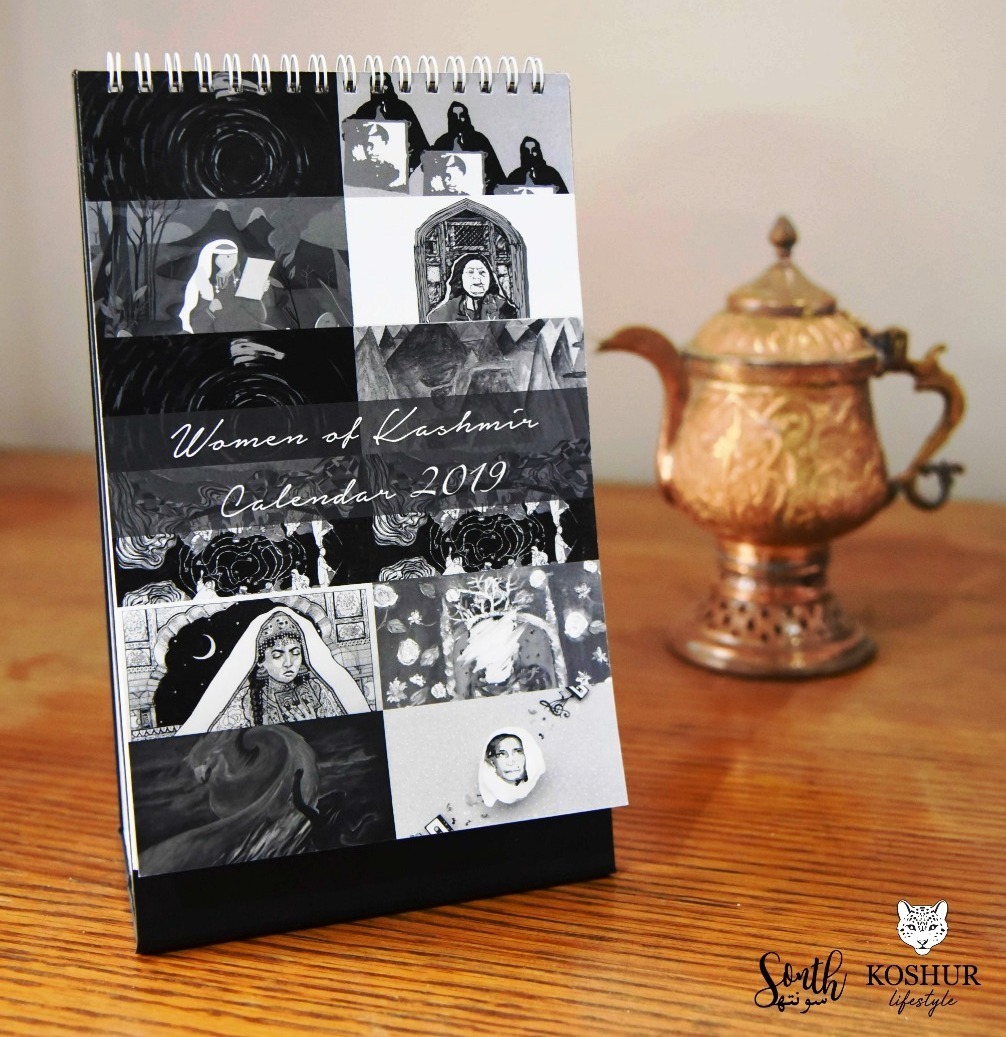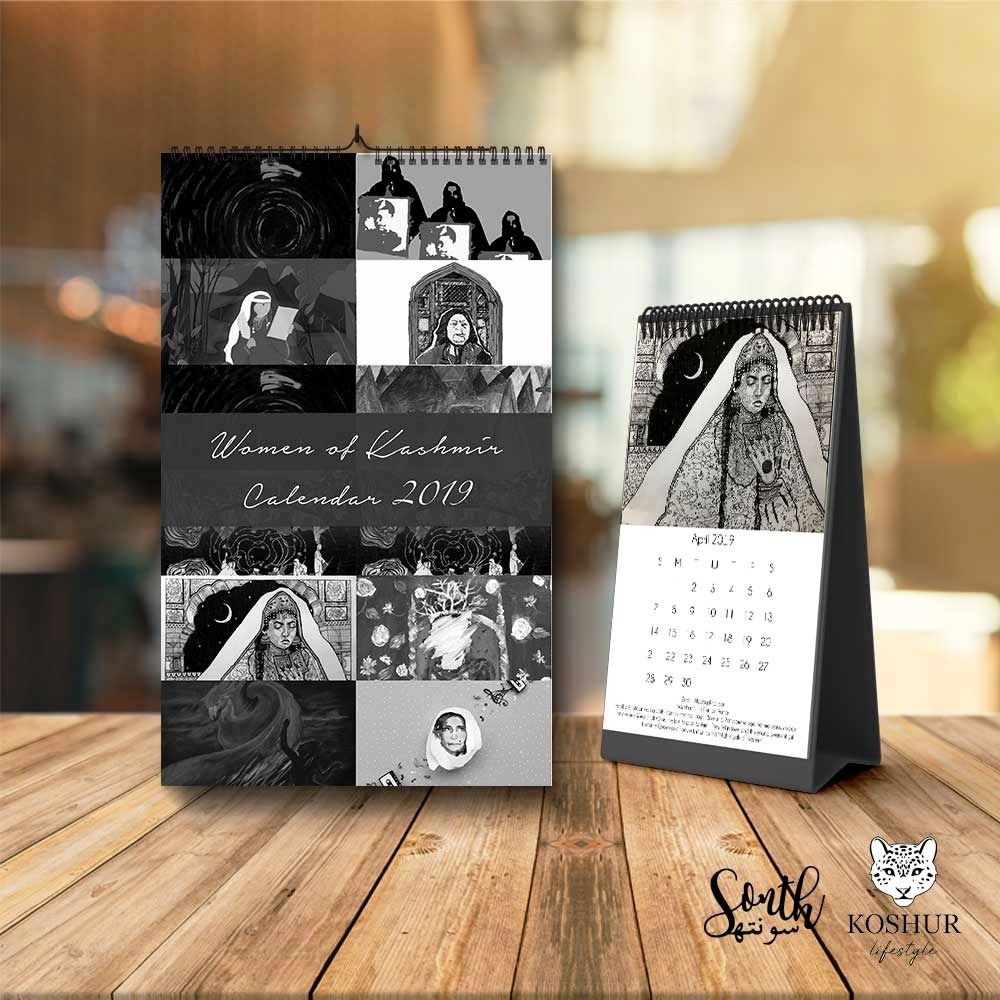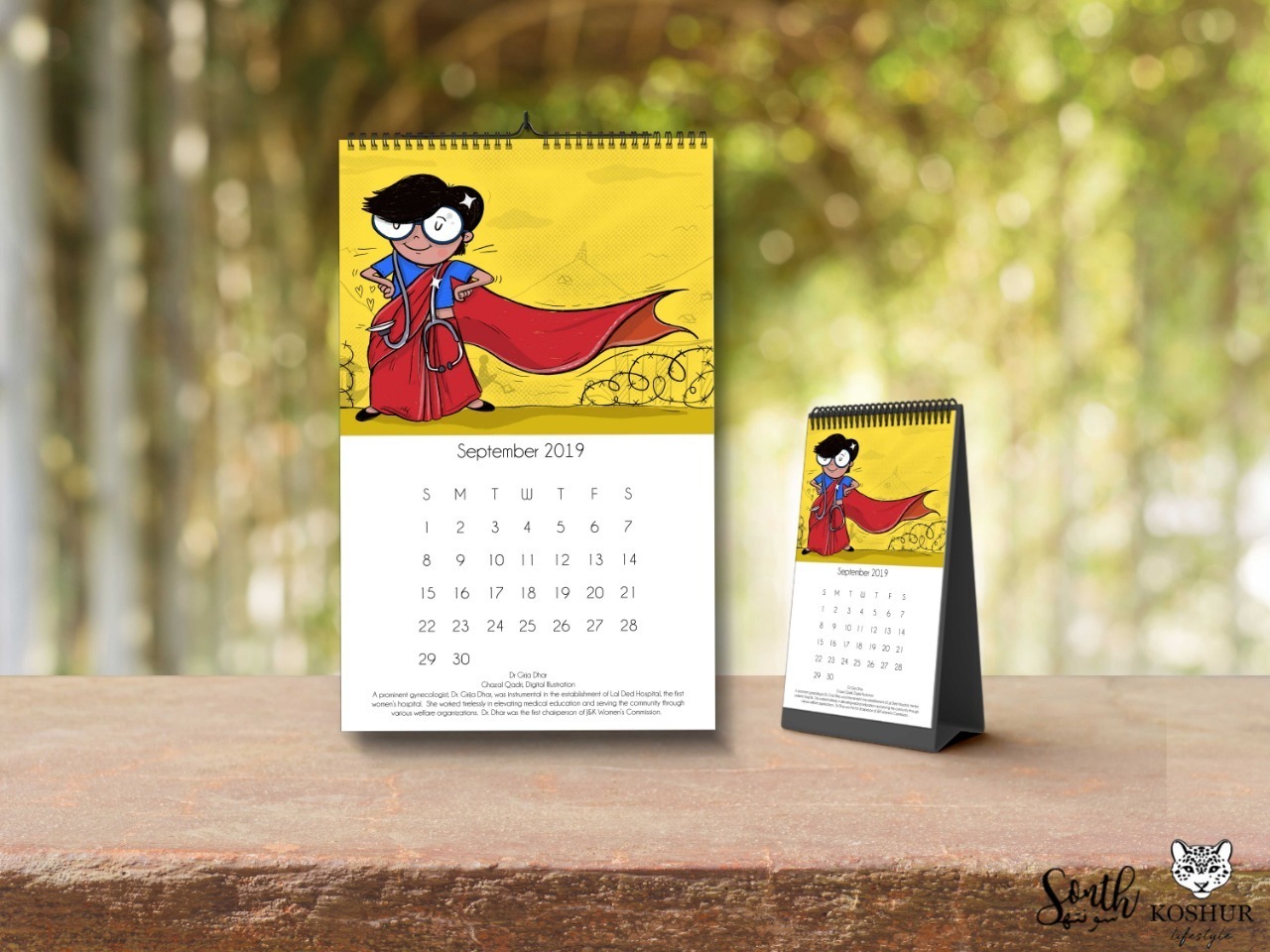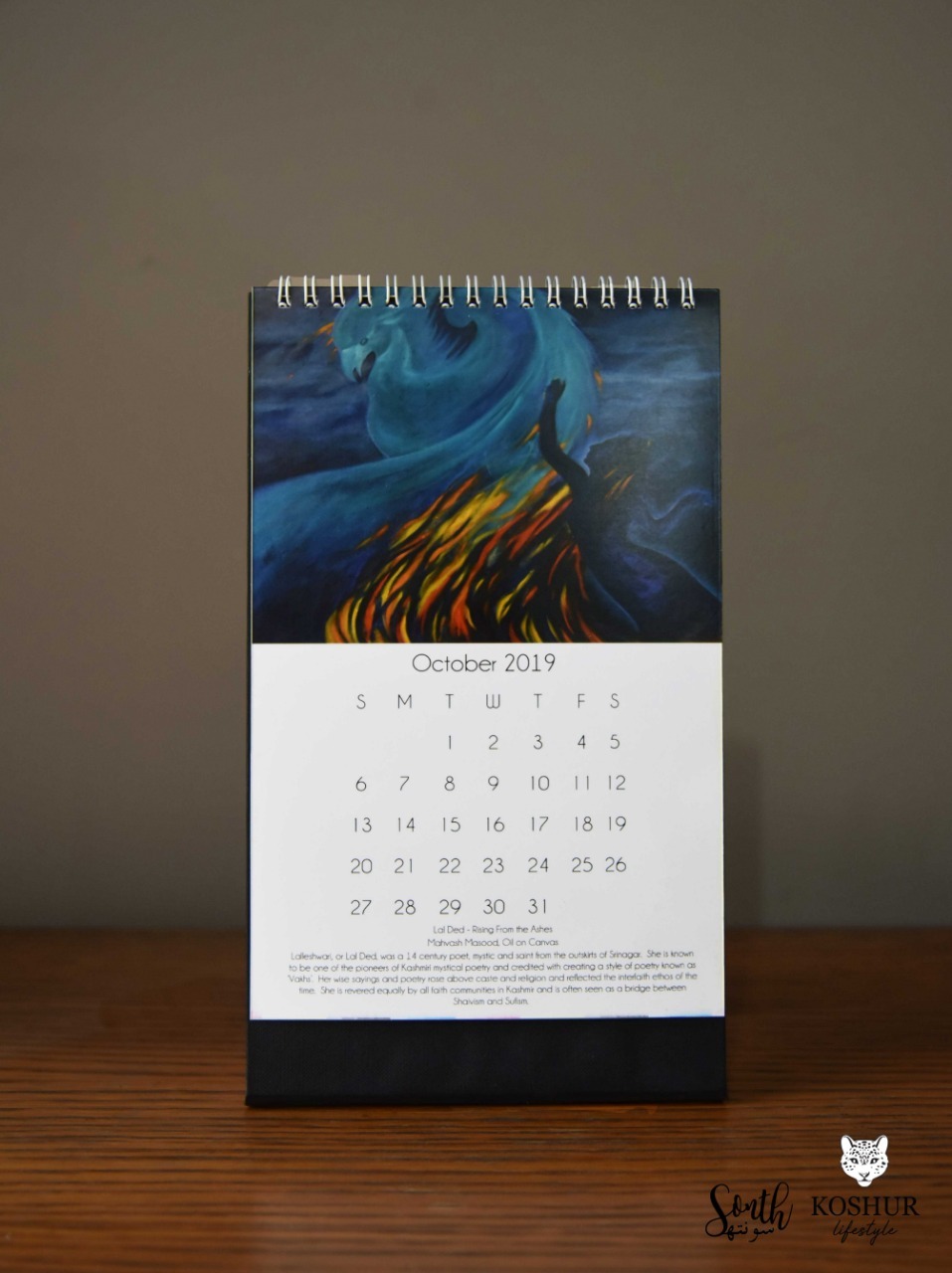Paying an artistic tribute to 12 Kashmiri women for their cultural contributions, nine young artists have come together to put up a calendar which will hang on walls from January 1, 2019. Among other things, the calendar attempts to canvass the unsung role of these women difference-makers, like never before.
For centuries, women have played an important role in shaping Kashmiri culture, but seldom have their contributions received the recognition they deserve. But now, that is changing.
For the first time, perhaps, young artists have come together to pay homage to women by rolling out a calendar for 2019. ‘Kashmiri Women’s Design Collective’, an annual calendar in which artists have selected women, who have had an impact on Kashmiri society.
The artists says they wanted to showcase the strength of these women who, despite the odds, have left their mark in the fields of healthcare, arts, music, education, politics and more.

Onaiza Drabu, 28, an entrepreneur hailing from Gogji Bagh area of Srinagar is one of the faces behind this venture. The thing that motivated her to launch the calendar, she says, is to empower women and let people know about their contribution.
“We have selected different women artists with a different genre of art who have illustrated their skills by portraying different women and thus contributing in anonymity,” Onaiza said.
The art varies from watercolour to drawing sketches, digital drawing, and canvas making.
“Everyone’s style is different and the thing that stands out is there is an architect who has made a portrait of famous singer Raj Begum through paper cuttings,” Onaiza said.
The task of carrying out the new venture has been daunting in terms of getting touch with all the artists but the whole process has taken them just months to complete.

“I had some ideas about who to go with,” Onaiza continued. “I shared the idea with some of my colleagues and they were so excited to work for this and I must appreciate all of them because each of them worked honestly with passion and within the stipulated time.”
The product is conceptualized by Sonth Kashmir, a quirky Kashmiri stationery brand, and developed in collaboration with Koshur Lifestyle, called Koshur Wear, a contemporary brand that celebrates Kashmiri culture.
“At the moment calendar is out for printing and orders have already started through Koshur Wear,” Onaiza said. “The calendar will be launched on January 1, 2019.”
Artists involved in the venture have also expressed their happiness after having contributed to it.
One of the artists, Zoya Khan, an architect, who teaches in Architecture School at Bemina, said that the artists picked different women who have contributed and come from different social backgrounds. She chose late Aatiqa Bano, the woman who established and curated a private museum in Sopore.
Zoya said their main concept was to pay homage to these women using different art media and they are happy to represent women as they were intended to. “We actually stand for equal representation of genders and not victimizing these women, but we acknowledge them as they have contributed in different domains,” she said.

On talking about how the calendar would shape in the society, Zoya said it is very interesting because the approach is very different.
“These women have been a source of inspiration for us and we want to carry their legacy forward,” she said.
Nusaibah Khan, 24, another architect, who has done her Bachelors in Architecture from Ahmadabad, said she and Onaiza had some ideas in the past about starting a stationery brand in Kashmir because the ‘art representation in the valley is quite less’.
“I was more into documenting heritage structures of Kashmir and all of us were working individually,” Nusaibah said. “Onaiza, me and Sama Beg [of Koshur Wear fame] then decided to collaborate and work in the broader perspective and finally the venture paid off.”

She asserted that they tried to get all the artists on a single platform for a common goal of portraying the characters who have contributed vastly but people are yet to get aware of them.
“The feedback has been positive from people here and outside the state and the fact that we are able to deliver the product throughout India makes it interesting,” Nusaibah said.
These artists want to show the world that despite many challenges, people in the conflict zone never lose the desire to live and celebrate their art and culture.
